- Lunch With Norm
- Posts
- [LWN] 🥛 The Lost Art of Connection
[LWN] 🥛 The Lost Art of Connection
Lunch With Norm's Weekly Newsletter - Amazon News & Updates
🥛 The Lost Art of Connection

What you’ll find in this week’s newsletter:
🥛 The Milk Man: The Lost Art of Connection [True Story]
🔥 Trump Tariffs Are Back
🛒 October Prime Day Results
🧐 What The Heck Happened to Aggregators?!
✅ Step-by-Step Image Creation With Nano Banana
🚨 Reply to this email with “#wheelofkelsey” for a chance for 3 months of Kevin King’s Billion Dollar Seller Club. Find out the results on Wednesday on the podcast!
🥛 The Milk Man: The Lost Art of Connection [TRUE STORY]
When I was a kid growing up in Kitchener, Ontario, life was simple.
No grocery delivery apps, no smart fridges telling you when to buy milk just people doing their jobs and actually talking to each other.
Every morning, like clockwork, our milkman would roll up in his light gray uniform.
I still remember the thin stripe running down his pant leg and that style of cap which is hard to describe, he always wore.
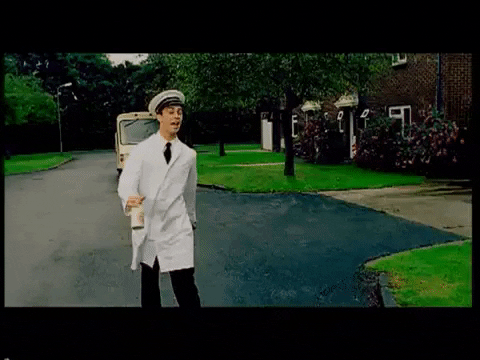
Our kitchen was tiny nothing like the open-concept kitchens you see today.
My chair at the table sat right beside the old wooden milkbox door.
The paint had been layered on a dozen times with a latch both inside and out.
Every morning, I’d hear that familiar click, and the door would creak open.
The milkman would smile through the little opening and say, “Morning, young man. You have a good day at school, now.”
Sometimes he’d chat with my mom for a minute maybe talk about the weather or remind her about a holiday coming up.
“Need an extra bottle for the weekend, Mrs. Farrar?”
It was the same man for over a decade.
Always on time, always polite, always smiling.
As a kid, I didn’t realize how much those simple interactions mattered.
It wasn’t just about milk it was about consistency, reliability, and genuine human connection.
He wasn’t trying to sell us anything extra. He just cared.
And then one day, he was gone.
The milk door stopped opening.
Looking back, I realize what we lost.
We traded convenience for that simple human connection.
In business, relationships built on consistency and kindness will always outlast quick transactions.
Whether you’re an Amazon seller, brand owner, or just starting out, your “milkman moments” matter.
Those small, genuine interactions with customers or partners can build loyalty stronger than any marketing campaign.
Never underestimate the power of being reliable, approachable, and human.
Enjoy the rest of the newsletter.
— Norm

This newsletter wouldn’t be possible without the support of our sponsors.

👇AMAZON NEWS AND UPDATES👇
🛒 Amazon October Prime Day Underwhelms Shoppers, Signaling Caution For Holidays
While 90% of shoppers were aware of Prime Big Deal Days ahead of time, it’s surprising that only 61% of July Prime Day shoppers returned to snag additional deals this October, though 19% said they couldn’t recall. In July, 88% of shoppers had participated in previous Prime Day events.
🚀 90 million sensors: Walmart’s bold move in logistics
🚨 Amazon debuts single-tap ‘Add to Delivery’ function
💰 As holiday sales growth slows, shoppers turn to sales events, buy now pay later
🔥 Amazon Extended Holiday Returns Begin November 1, 2025: What Sellers Need To Know
🇺🇸 Trump’s New Trade War with China: Full Timeline & Seller Impacts
Trump announced a 100 % tariff increase on Chinese exports and tightened new export controls on critical software, escalating the trade war and ending the uneasy truce between the countries.
Tariffs are set to begin November 1st, 2026.
Timeline of Trump’s 2025 Trade War with China:
Jun 27 - U.S. claims resolution of rare earth and magnet issues with China.
Jul 6 - Trump threatens 10% tariff on BRICS-aligned countries, including China.
Jul 15 - U.S. says Nvidia to resume H20 chip sales to China as part of rare earth negotiations.
Aug 1 - U.S. “optimistic” about deal path forward with China.
Aug 8 - U.S. begins issuing Nvidia H20 export licenses to China.
Aug 10 - Trump urges China to quadruple U.S. soybean purchases ahead of truce expiration.
Aug 11 - U.S. and China extend tariff truce by 90 days.
Sep 4–13 - Trump pushes G7, EU, NATO to slap 50–100% tariffs on China over Russian oil revenue.
Sep 14 - Trade talks continue in Madrid; TikTok divestiture deadline looms.
Sep 15 - U.S. and China reach framework to transfer TikTok to U.S. ownership.
Sep 17 - China agrees to review TikTok’s tech exports and IP licensing.
Sep 19 - Trump and Xi call: progress on TikTok deal, plan in-person meeting in 6 weeks.
Sep 21 - First U.S. House delegation visits China since 2019, urging renewed engagement.
Sep 24 - U.S. Treasury says aircraft parts and chemicals offer leverage in trade talks.
Oct 1 - Trump says soybeans will be key topic in Xi meeting; China had reduced U.S. soybean imports.
Oct 7 - U.S. lawmakers push broader chipmaking bans after $38B in Chinese semiconductor purchases.
Oct 9 - China tightens rare earth export controls and scrutiny on semiconductor users.
Oct 10 - Trump adds 100% tariffs on China goods, threatens Boeing export controls; truce ends.
Oct 10 - China launches Qualcomm antitrust probe, announces port fees on U.S. ships from Oct 14.
Oct 12 - China defers U.S. call request; defends rare earth curbs, slams U.S. tariffs as hypocritical.
🚨 Amazon Rolls Out “Seller Challenge” System
Amazon just gave sellers under Account Health Assurance (AHA) a new tool to push back on enforcement decisions even after the regular appeal process fails.
It’s called Seller Challenge.
This lets you submit up to three challenges every six months.
Each challenge gets a decision within 48 hours, and they renew once used.
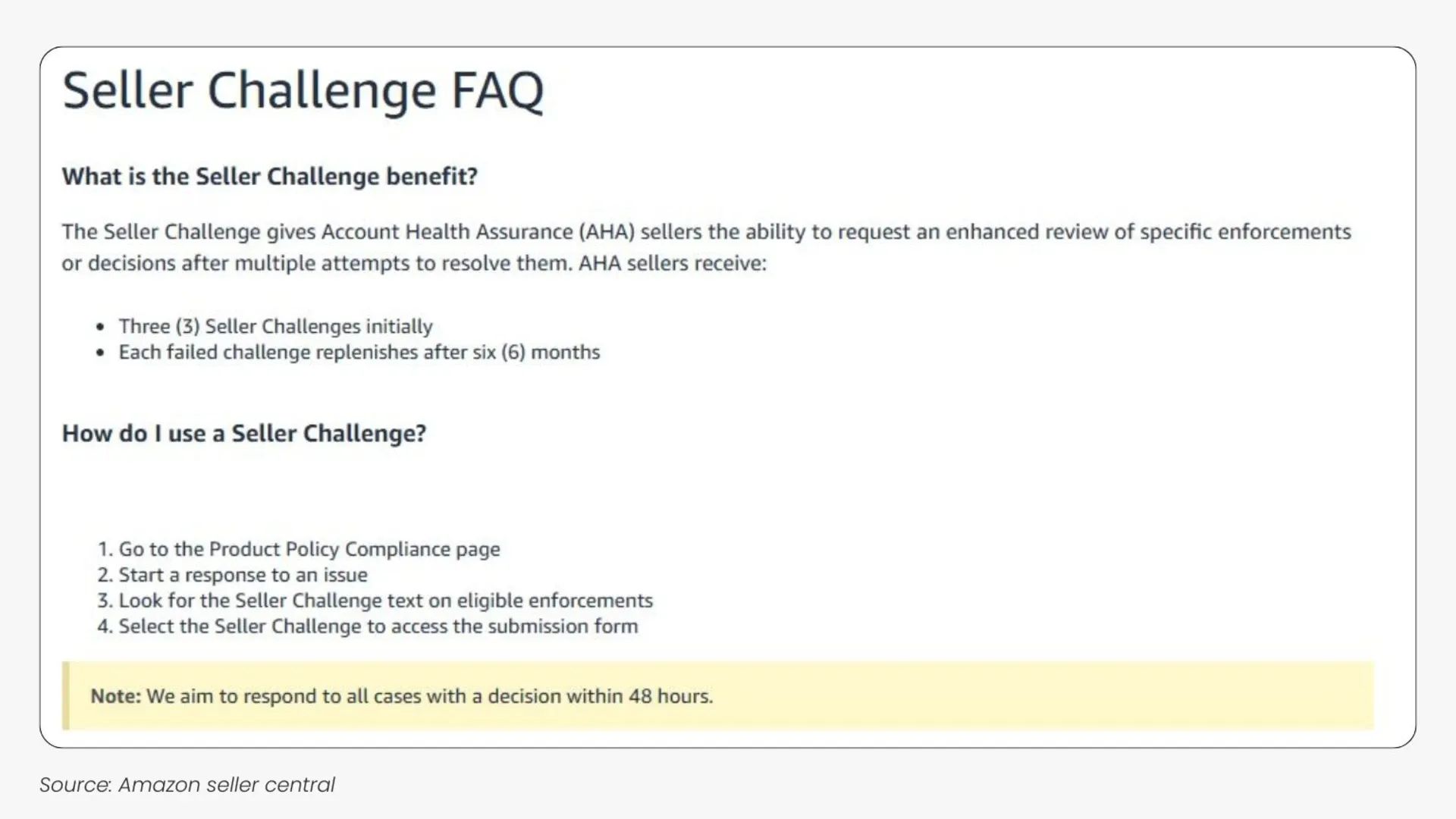
How It Works
This new feature only applies to sellers enrolled in Account Health Assurance.
You get three challenge tokens every six months.
If a challenge is used, that token is replenished after six months.
You can’t re-challenge the same violation, one shot per issue.
Listings stay deactivated during the review.
If you lose AHA eligibility, you lose access to unused challenges until you qualify again.
The idea is to give sellers another layer of due process after standard appeals hit a wall.
Head to the Product Policy Compliance page → Look for enforcement issues with a “Seller Challenge” tag.
If it’s eligible, you’ll see the option to open a challenge.
But don’t get too excited yet.
This is still limited, still vague, and still locked behind AHA.
Use it wisely,
Track your three tokens.
Keep your AHA status in good standing.
We’ll see if this expands to account-level enforcement or becomes another tool that quietly disappears.
Let me know if you’ve seen this feature live yet!
✅ Step-by-Step Image Creation With AI!
Here’s how we used Nano Banana inside Google Gemini (or the AI Studio interface) to create three types of content visuals!
1. Upload Your Starting Image
We began by uploading a product photo (for ads), a screenshot/portrait (for thumbnails), or an event image (for banners). Nano Banana handles most common image formats, so there’s no need to prep files in advance.

2. Write a Direct, Descriptive Prompt
For a product ad, we typed:
‘Remove the background and place the product on a bright yellow background with bold lighting perfect for a product ad.’
For thumbnails:
‘Make the subject larger, brighten the face, blur the background, and add ‘new thumbnail’ text on the left.’
For banners:
‘Place the subject on the right with a blurred background, leaving space on the left for text.’
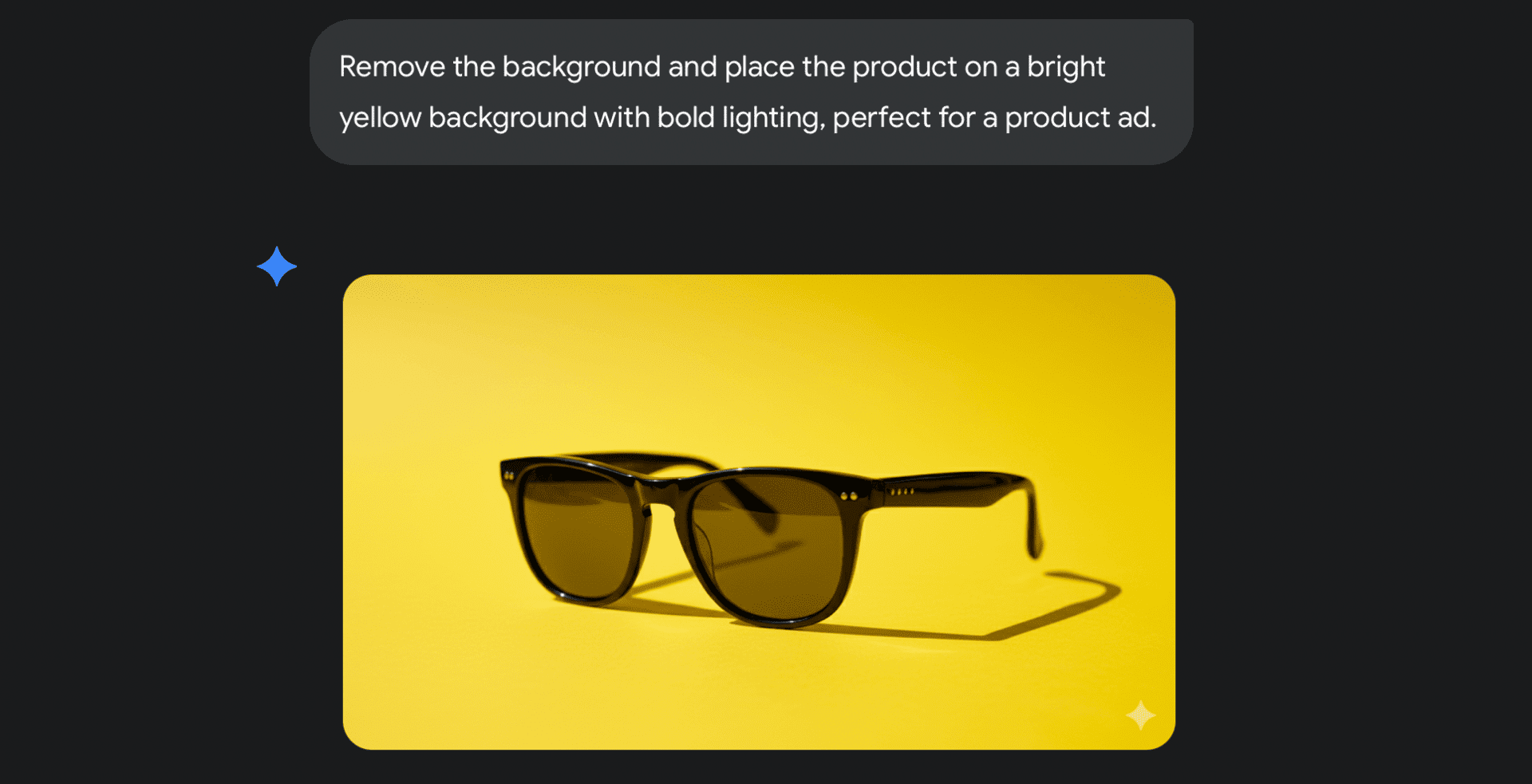
3. Experiment With Contextual Scenes
To add authenticity, we tried prompts like
‘Place the product on a kitchen counter in natural light.’
4. Iterate Rapidly for Variations
On a thumbnail idea, we asked for multiple versions: one with the subject pointing and surprised (high-contrast colors), another with a confident smile and a soft blue background. Nano Banana generated several options in seconds, letting us pick the most engaging for each platform.
5. Add & Adjust Text Where Needed
While Nano Banana can add short text (like “SALE” or “NEW”), longer captions or branded elements are easier to fine-tune in Canva or Photoshop.
We downloaded the AI-generated image and finished the design.
6. Finalize & Export
With the main graphic ready, we exported the finished image at the right size for each platform. This workflow saved at least 60 minutes per image compared to traditional editing.
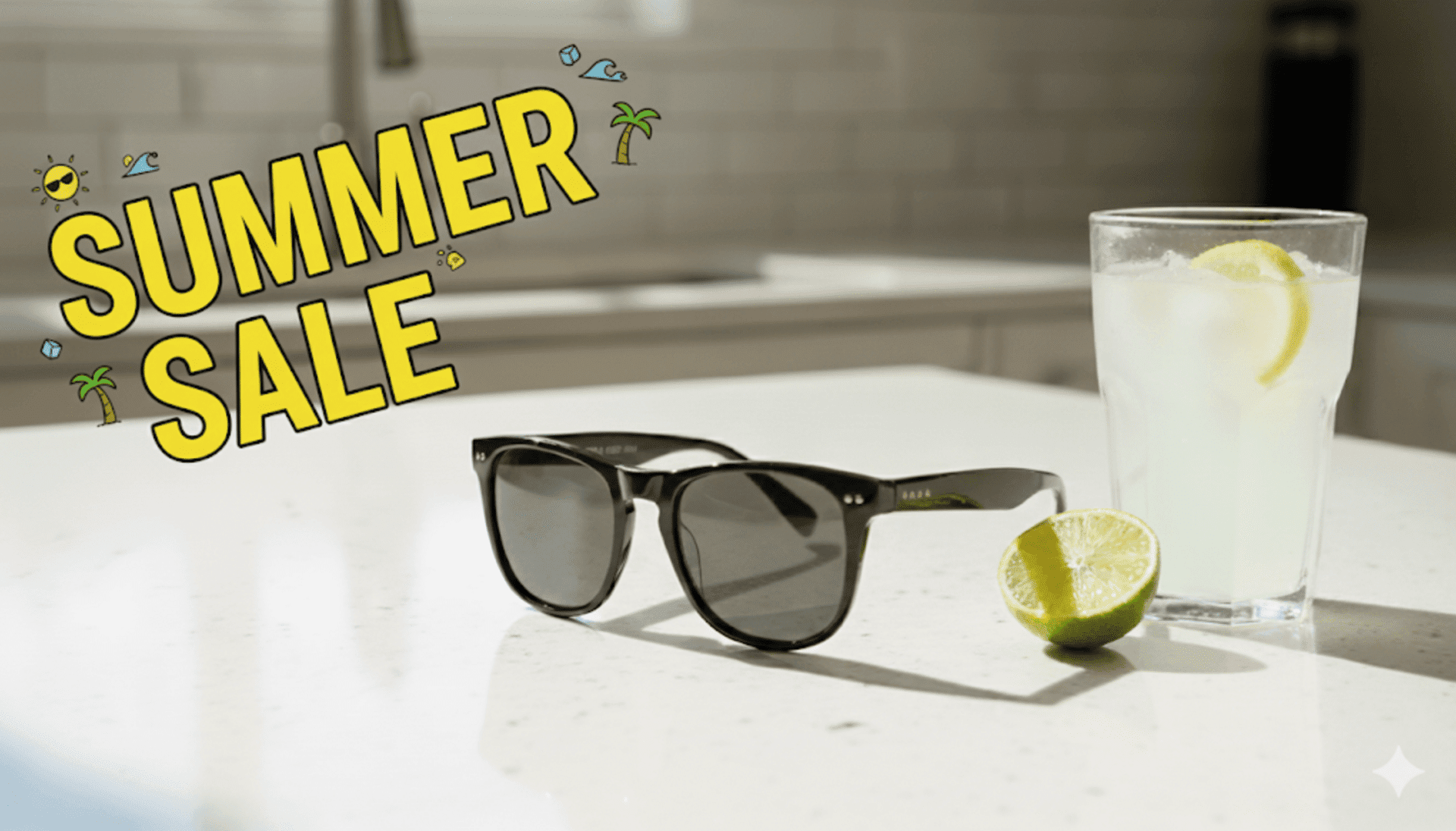
The final result!
🚨 If you would like to learn more about AI → FUTUREPEDIA
🧐 What the Hell Happened to Aggregators?
People love to say the Amazon aggregator model didn’t work.
That’s not exactly true.
What didn’t work was paying 7x EBITDA for private-label junk just to hit a growth target during a capital bubble.
Thrasio started with good fundamentals.
Buying profitable Amazon brands at 2x, cleaning up ops, stacking them. It was working - until they scaled too fast, overpaid, and lost the plot.
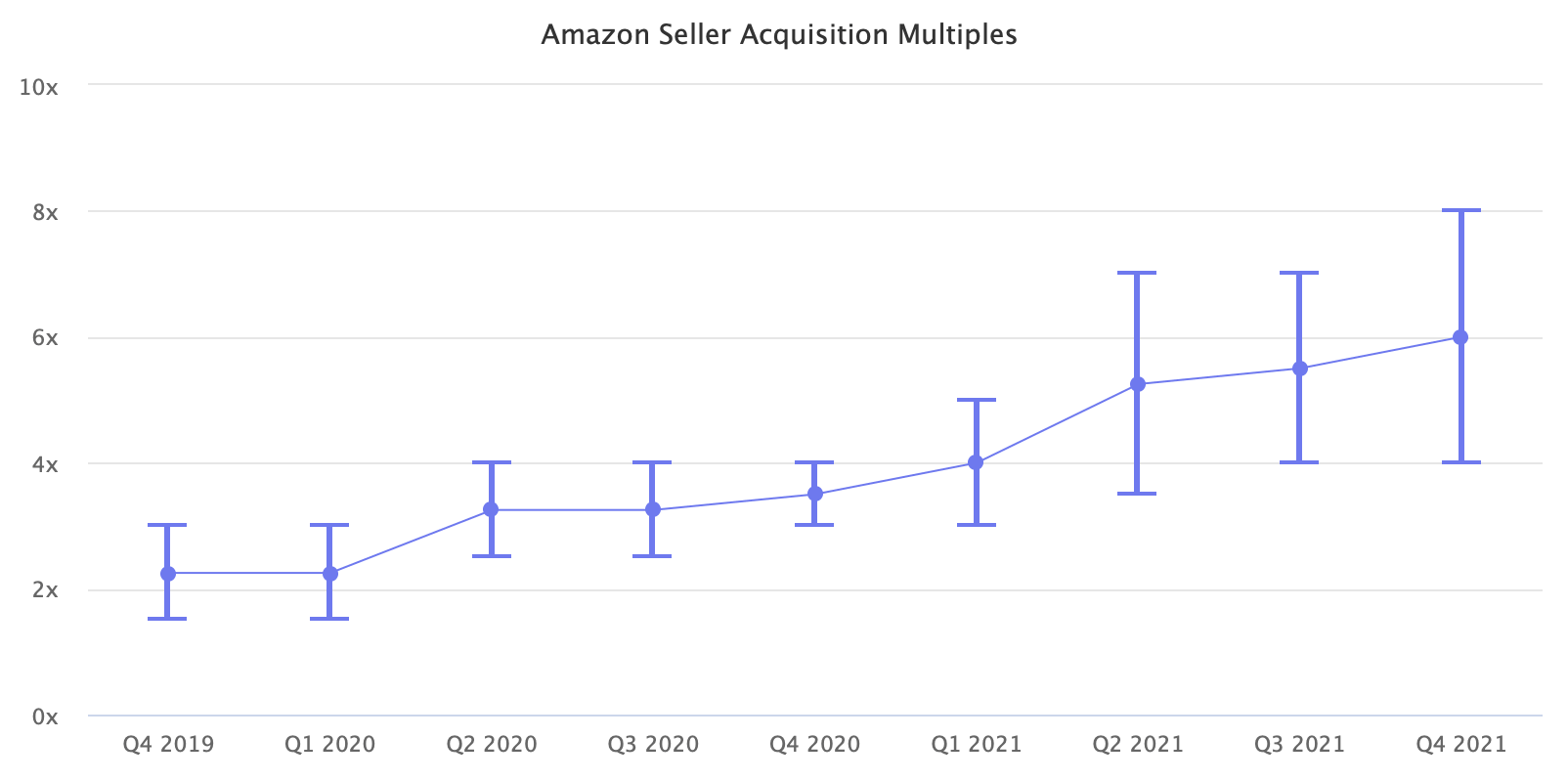
In a new interview, Thrasio co-founder John Hefter laid it out.
They went from 4 founders to 1,600 employees in under 3 years.
Bought 200 brands, sometimes multiple per week.
Near the peak, they were spending 7x EBITDA on what Hefter himself calls “Chinese vaporware garbage.”
At one point, a test inventory order accidentally got processed across the entire portfolio.
Cost them hundreds of millions.
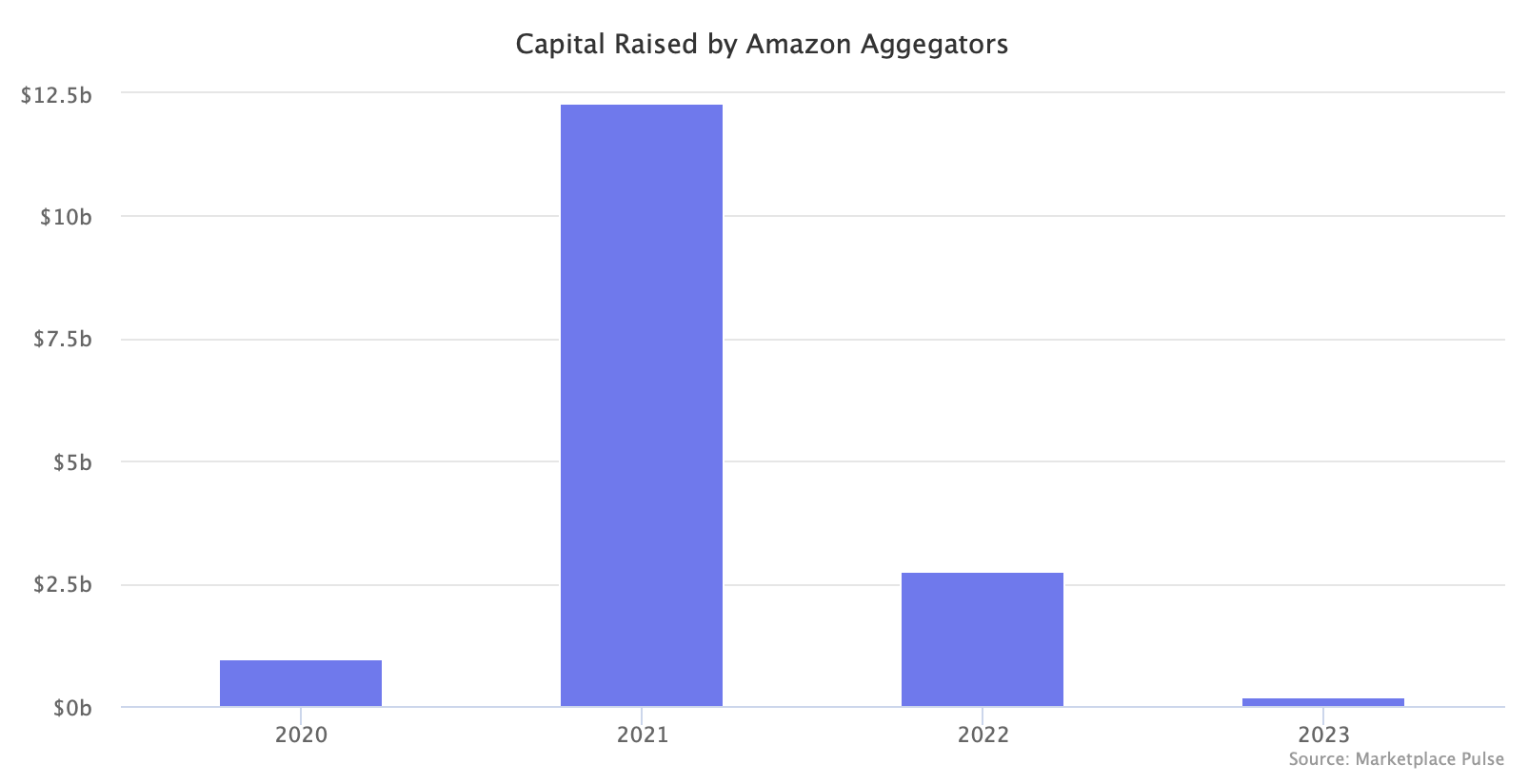
In 2021, aggregators raised $12.3 billion, 75% of it debt.
They bid against each other until the very economics that made the roll-up model attractive were gone.
We saw it in real time:
Multiples skyrocketed.
Good brands got too expensive.
Bad ones slipped through.
By 2022, the money was locked up, and everyone was stuck holding the bag.
There are fewer active Amazon sellers today, but over 100,000 now do $1M+ per year.
The game has changed.
This is Amazon.
You can’t throw capital at something and expect success.
You need real operators, systems, and discipline.
Otherwise, you end up with a warehouse full of pink umbrellas and a $3 billion write-off.
🌎 Where in the World is The Beard Guy?

Can you find Norm in the picture below? Scroll to the bottom of this newsletter to see the answer!

🚀 Amazon Ad Expert Reveals His Q4 Game Plan | George Meressa
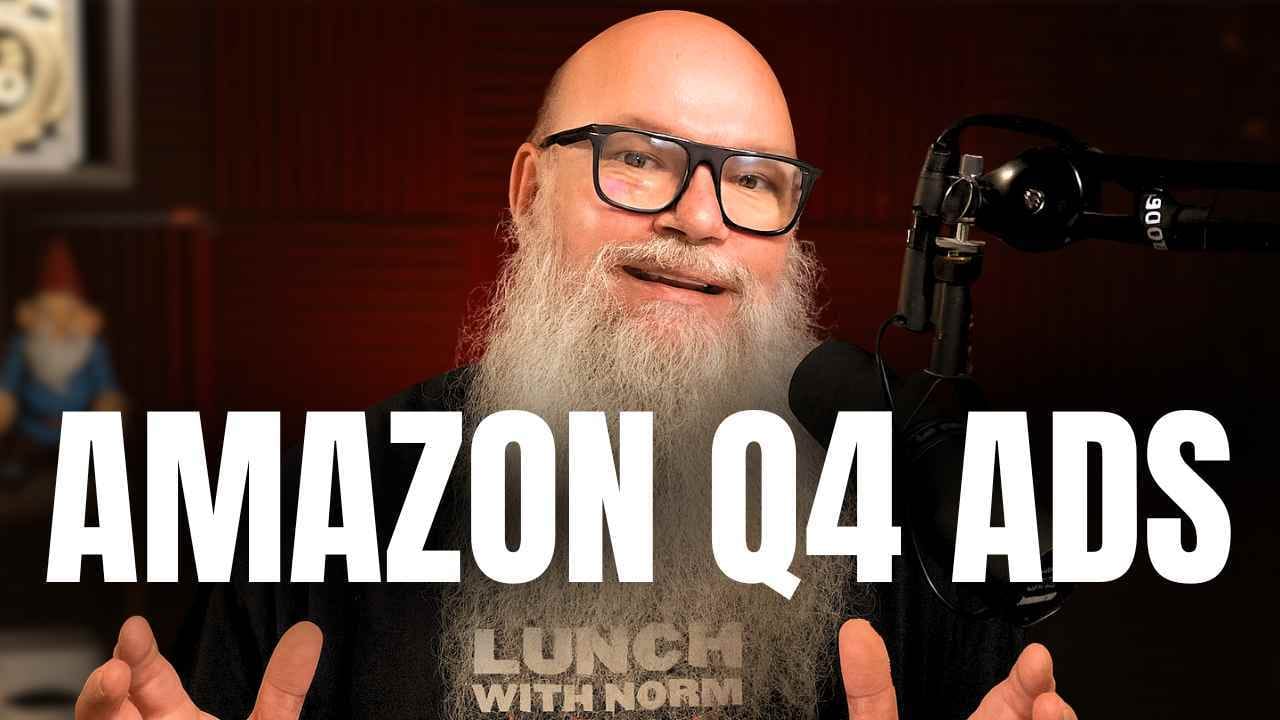
1. Q4 Strategy Starts Months Before Q4
Smart advertisers are already bidding and indexing for Q4 keywords in August.
Example: “Christmas trees” search traffic started spiking mid-August.
Identify top Q4 keywords now in Brand Analytics and Search Query Performance.
2. Holiday Personalization = Higher CTR & CVR
Sponsored Brand ads with holiday creative (ribbons, bows, “giftable” messaging) consistently outperform generic ads during Q4.
Split test holiday-themed imagery and copy in Sponsored Brand and Sponsored Display.
3. Shift from Keyword-Only to Audience + Intent
Amazon’s AI-driven ranking systems (Cosmo + Rufus) are changing search behavior:
Add semantic detail to titles, bullets, and A+ content to align with natural language search.
Tailor ad creative to personas (e.g., seniors vs parents vs athletes) based on real audience data.
Use Search Query Performance reports to find and double down on intent-rich terms.
4. B2B Campaigns = Easy Q4 Wins
B2B Sponsored Brand campaigns are underutilized but perform strongly in Q4.
Businesses buy in bulk → higher AOV + repeat purchases.
Turn on B2B pricing in inventory settings and launch Sponsored Brand B2B campaigns targeting bulk-buying segments.
5. DSP & External Reach Are Exploding
Amazon is now opening premium placements like Netflix for DSP advertisers.
These are expensive but offer top-of-funnel reach and exclusivity.
🔥 She Turned Facebook's Big Problem Into FREE Leads... And Made Millions
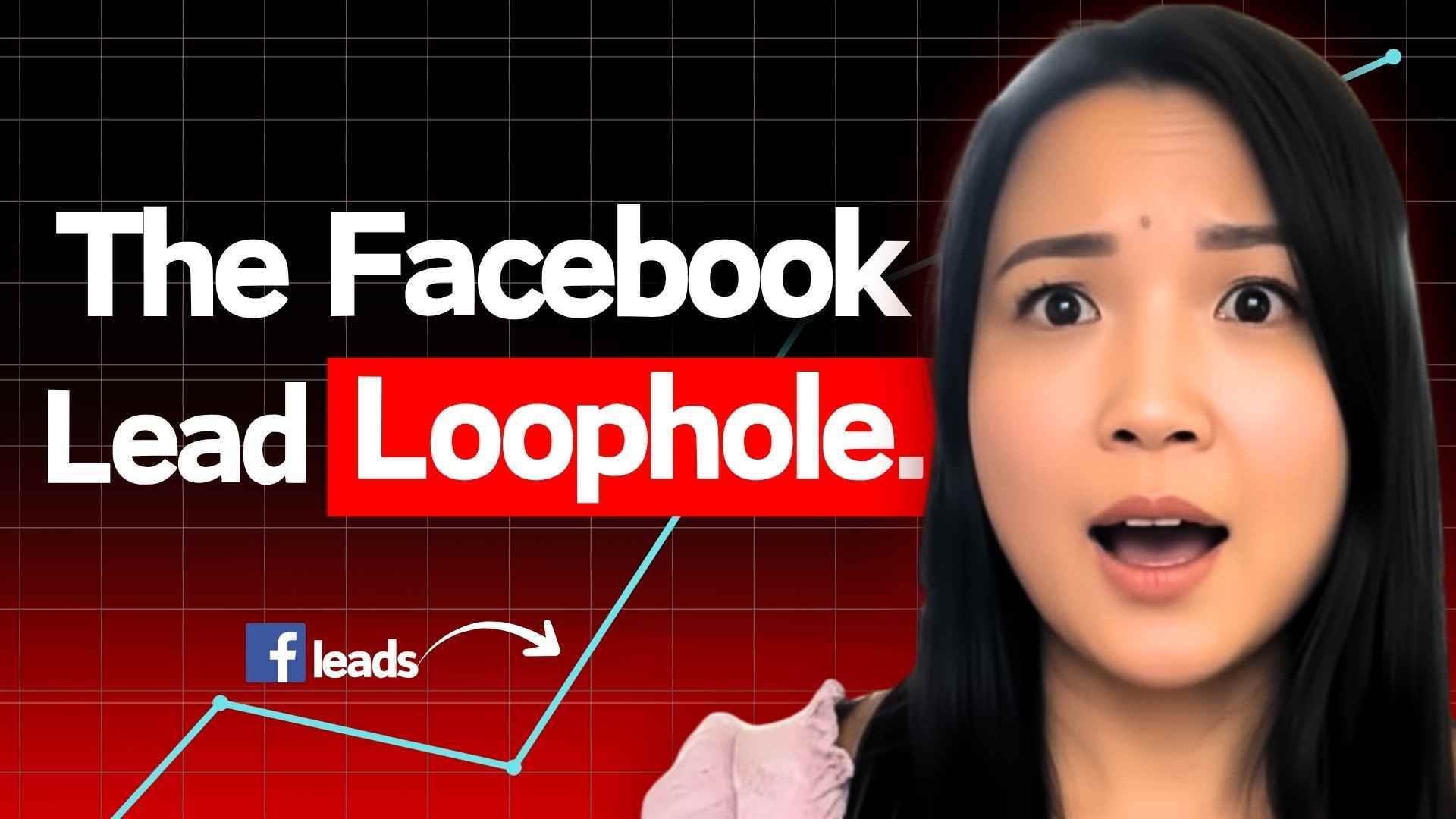
Here are my favorite tips from this episode!
1. Turn Communities into Compounding Lead Engines
Kim built her SaaS business by scratching her own itch: instead of subscribing to a tool that exported Facebook group questions
2. Build Software as a Leverage Layer, Not a Startup
Her Chrome extension wasn’t a venture-funded SaaS, it was a $380 build that turned into thousands of paying users.
Kim leverages tiny, high-utility Chrome extensions as “digital real estate”:
They live in the browser toolbar.
There’s no traffic cost (users see your logo daily).
Low churn due to daily utility.
3. Own Your Land. Don’t Build on Facebook’s
Facebook groups are rented land.
The tool captures emails from new members joining a Facebook group, pushes them to a Google Sheet, and from there into automations (Klaviyo, ManyChat, etc.).
4. Community Monetization = Nurture Group + Pitch Group
Kim separates her audience into:
Nurture Group: large community with low friction and no hard selling.
Pitch Group: smaller, campaign-based, offer-driven environment (webinars, challenges, launches).
5. Setter–Closer Systems Drive Conversion
She runs her entire sales process with setters (who qualify and book) and closers (who convert).
This lets her monetize communities without being the salesperson — turning traffic into warm DMs, then calls, then sales.
Find this episode of Marketing Misfits on YouTube and anywhere you listen to podcasts
🌎 MARK DOWN THESE EVENTS! 🌎
Oct 13 - 16 - Austin - Starting at $1297
Oct 20 - New York - Starting at $428
Nov 6 - Tampa Bay - $3997
Nov 13-17 - Austin - Starting at $3997
→ FULL CALENDAR ←
And that’s it, Beardos.
See you next Monday!
- Norm
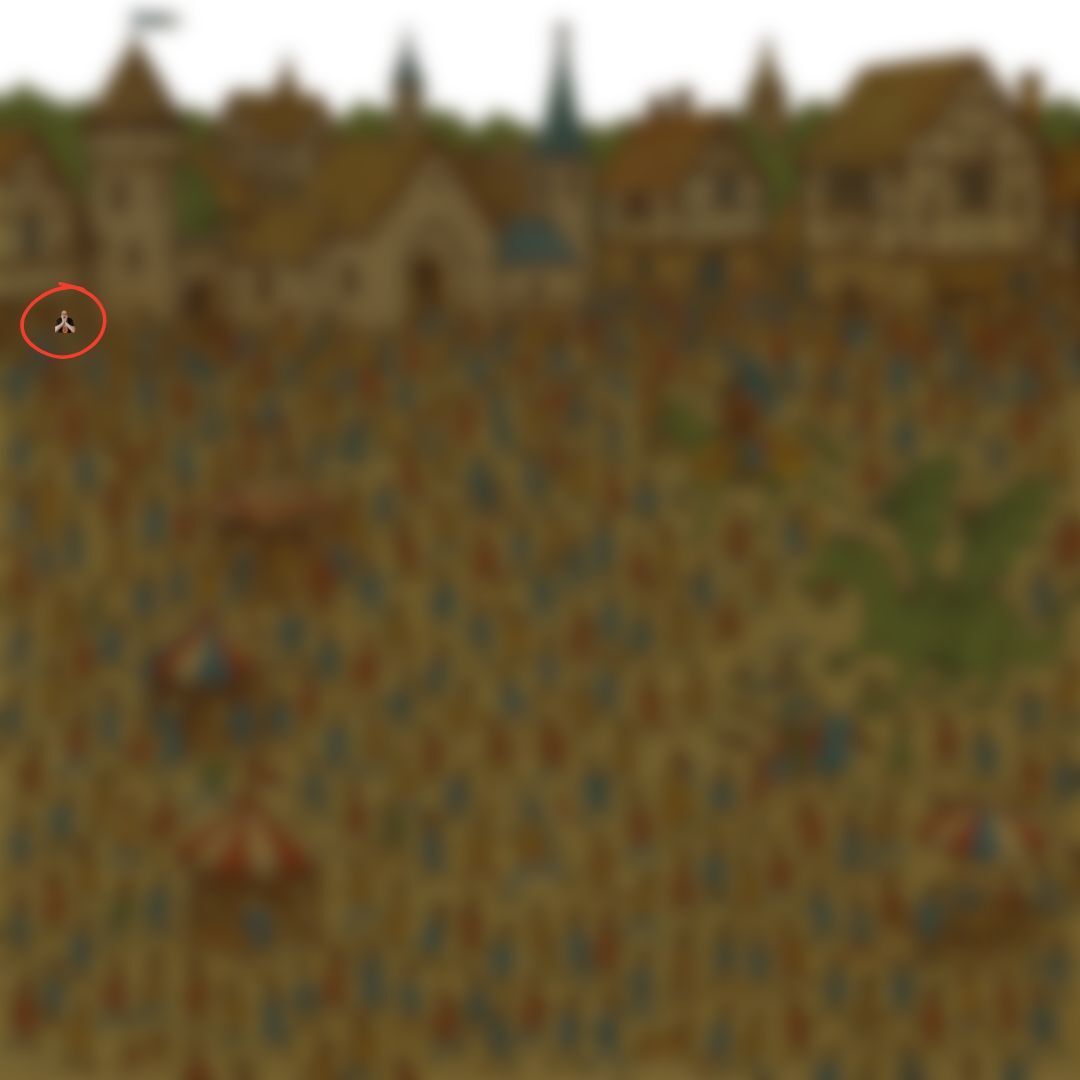
Interested in sponsoring the Lunch With Norm Newsletter? Reply back to this email for more details.
Reply